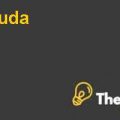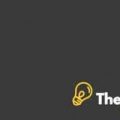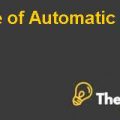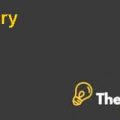
Introduction
Audit and assurance is a key component of business and accounting professionals, because several risks are involved in operating an organization.But the quality of audit and assurance services provided nowadays is really debatable and many questions are raised on the quality control review (QCR) of audit firms.
Types of Auditors
There are basically two types of auditors; the internal auditor and external auditor.
Internal Auditor
The internal auditors are those who work within the company and are reporting its audit director. These auditors help the company to design its organizing system and also help the company to develop the risk specific management policies. The internal auditors have the continuous work that's based on the internal control systems of a business of any size. They are responsible to perform the audit for the company that include both financial and non-financial within the range of business areas of the company.
External Auditor
The external auditor is an independent body that be located in outside the company to whom it is auditing.The external auditors report to the shareholders of the company. They provide the company advice on the basis of financial statement analysis of the company. They help the company to identify the factors that are the threats to the company and identify the opportunities assist the company to enhance its financial performance.
Internal auditor and external difference
Shareholders of a company selected the external auditors which are from the different organization, whereas an internal auditors are normally the employees of the company. In addition to this, to keep the client satisfy is more difficult as an external auditor as compared to the internal auditor. Secondly the objective of the external auditor is set by the statute on the other hand the objectives of the internal auditor are defined by the management of the company.
The external auditors are allowed to examine and analyze the every aspect of the company system where the internal auditor are allowed to focus only on the certain areas of the company.
The external auditors are accountable to the company’s owners that may include the owners to the shareholders to the general public and to the government while the internal auditors are accountable to the senior management of the company.
The external auditors focus on the finance along with the risk that are associated with the financial performance of the business. While the internal auditor is focused on identifying the risk associated with the business as well as the methods that a company uses to effectively managing those risks.
The external auditor examines whether the annual financial accounts of the company are giving a true view which must be in accordance with the legal requirement for the company. The internal auditor examines that whether the practices of the business are helping the business to mitigate its risk while meeting its strategic objectives. In external auditor there is no requirement for the check till the time of next year audit. On the other side, there is a check requirement in the internal auditing in order to find out whether recommendations have been implemented or not.
Risks Regarding Internal Auditors
Internal Audit is entering into the new era of different challenges. Internal auditors face many risks and challenges while working in their own organization. Some of the risks are as follows:
- Safeguarding Independence: Independence is the most crucial characteristic related to any internal auditor. As we know an internal auditor is an employee of the company and it depends on the company. Although he reports to the Internal Audit Committee, but he is not totally isolated from other departments. So his independence may be compromised.
- Reliable Data: The data used by internal auditor is the one generated internally and prepared by the employees of the company. So the reliability of the data is at risk.
- Peer Pressure: Performance of the internal auditor can be affected by the pressure from any senior individual. For Example any director may influence internal auditor to act in a certain way which may contravene the rules and ethical values of an audit.
- Incentives may affect objectivity: An internal auditor’s objectivity may be affected by incentives given to him. For Example he may not detect the misstatements in the financial statement because the company is seeking for a long term loan, which will be given on the good financial statements.
- No requirement for qualification: There is no particular requirement for qualification of internal auditors. Internal auditor may be a person having qualification of B.Com, BBA, MBA, CIMA etc. This puts the effectiveness of internal audit at risk.
Quality Control Procedures: QCPs of the company also affects the performance of internal auditors. If good QCPs exist, internal ....................
This is just a sample partial case solution. Please place the order on the website to order your own originally done case solution.













